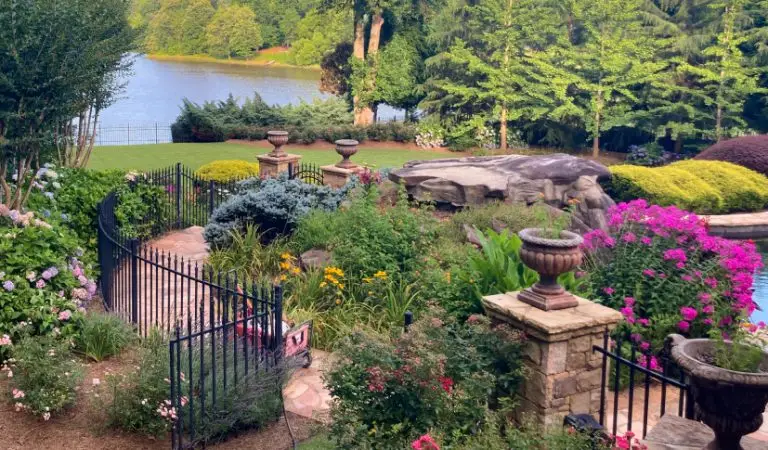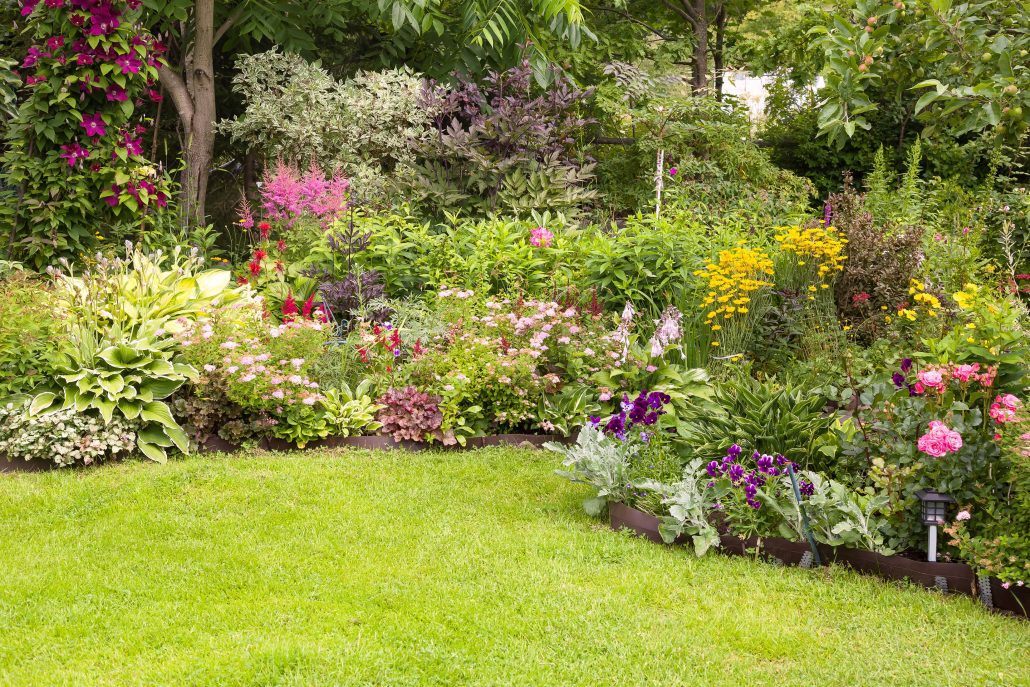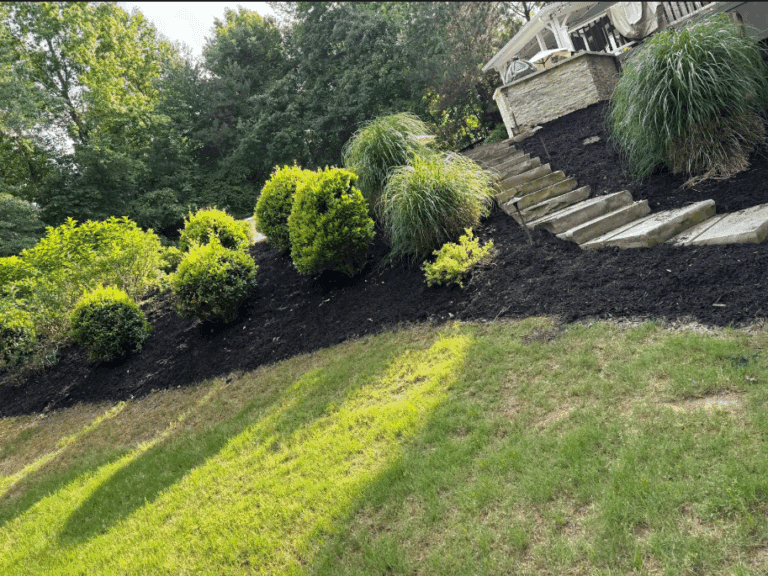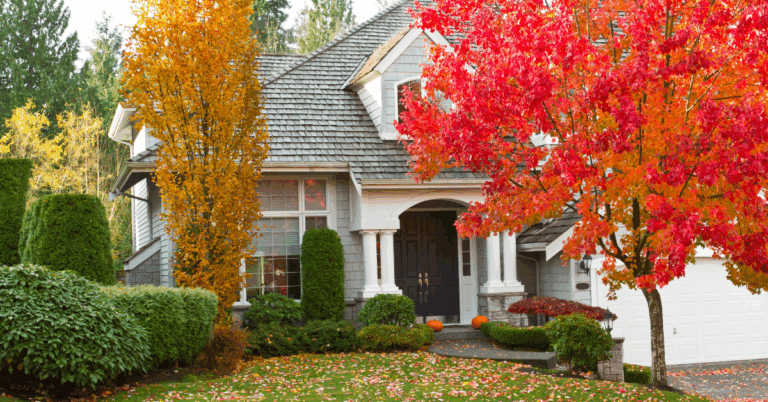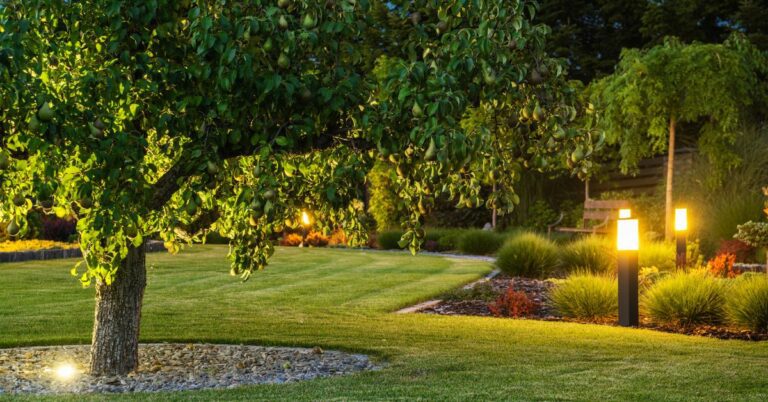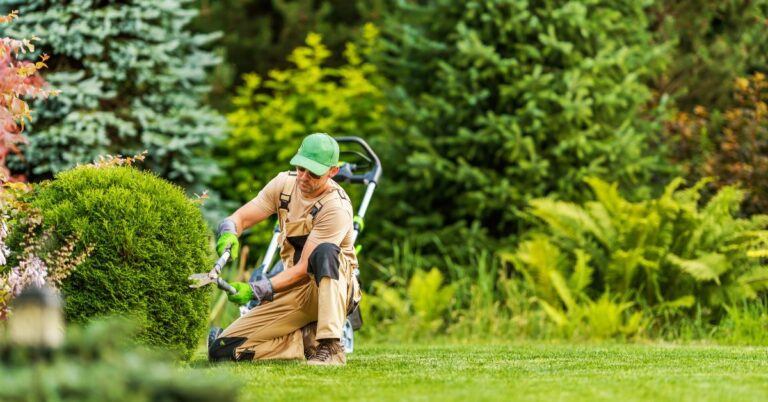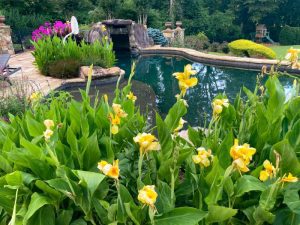Spring has arrived and is in full swing, making it a great time to start gardening or get plants installed professionally. With the colder weather being replaced by Georgia’s sunny skies and humid temperatures, it creates the perfect environment for a multitude of different plants to spruce up your property. At Creech Landscape, we value the importance and beauty of a healthy spring garden and offer tips and recommendations on how to make your landscape look beautiful this spring.
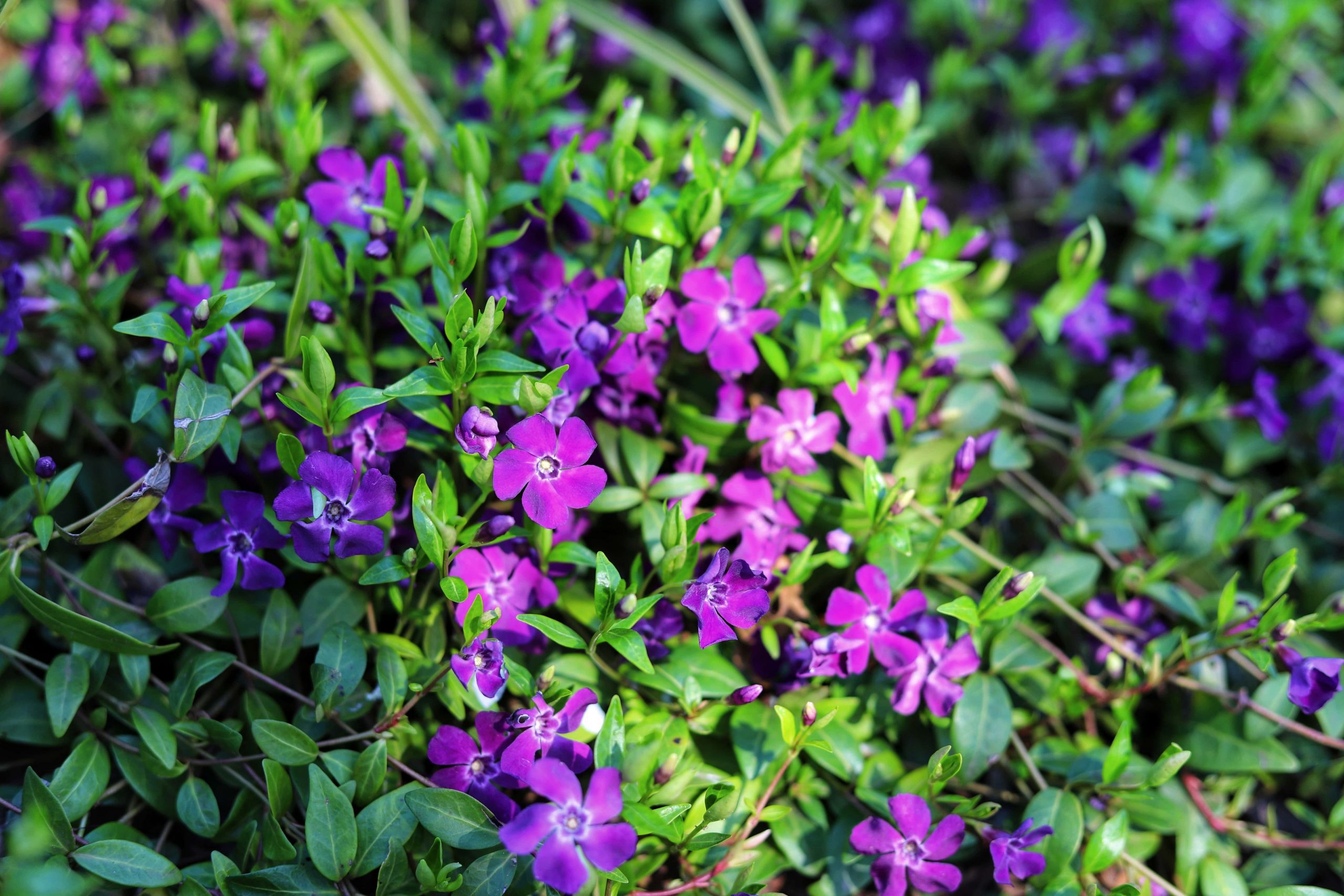
Recommended Flowers for a Colorful Spring Garden
Spring flowers offer a wonderful splash of color to your property and create an eye-catching landscaping layout. Here are a few flowers we recommend to plant in your spring garden this season:
Vinca
Annual vincas, also known as Madagascar periwinkles, are a great choice for sunny plant beds. These annuals thrive in warm weather and sport beautiful flowers that look similar to impatiens.
The dark leaves and bright blossoms create an eye-catching contrast, which makes them stand out well along trails with other bright flowers. They are also deer-resistant and attractive to butterflies.
- Scientific Name: Catharanthus roseus
- Height: 6-18 inches
- Soil Requirements: Sandy or loamy, dry, well-draining
- Sunlight Exposure: Partial shade or full sun
- Color Variations: White, pink, mauve, red
Purple Secretia
Purple secretia, also known as purple spiderwort and purple heart, is a gorgeous vining plant with purple stems and leaves, as its names suggest. It grows clusters of small pink or violet flowers, adding a soft but bright accent to the deep-colored foliage. Purple secretia thrives in sunny spots of a landscape and can be planted in containers they can hang out of or around beds where they’re allowed to spread out a little. They are also deer-resistant.
- Scientific Name: Tradescantia pallida
- Height: 1-2 feet
- Soil Requirements: Sandy to clay, alkaline to acidic, moist, well-draining
- Sunlight Exposure: Partial to full sun
- Color Variations (Flowers): Pink, violet
Joseph’s Coat
Joseph’s Coat, or joyweed, is a vibrant addition to a spring garden. The flowers are small on this plant, stepping aside to be an accent while the foliage takes center stage. Fast-growing and low maintenance, this plant takes quickly to Georgia’s warm and humid weather in the late spring. They grow well in containers, but can also be planted in small mounds to complement bright flowers or other plants with colorful foliage.
- Scientific Name: Alternanthera ficoidea
- Height: 6-12 inches, 1-3 feet (Varies)
- Soil Requirements: Acidic or neutral, moist, well-draining
- Sunlight Exposure: Full
- Color Variations (Flowers): White
- Color Variations (Leaves): Pink, orange, red, yellow, copper, purple
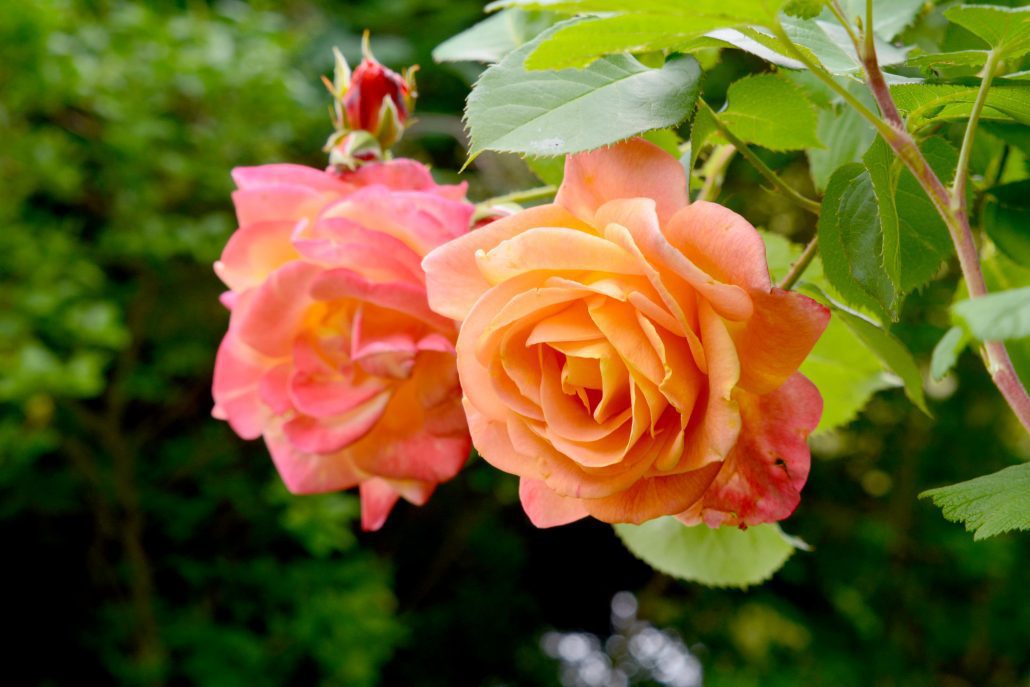
Angel Wing Begonia
True to their name, angel-wing begonias are flowering shrubs with dotted, wing-like leaves. The flowers come in a variety of warm colors and complement the unique pattern of the foliage. These shrubs do well in warmer weather and thrive best in shaded areas to keep their waxy leaves from getting scorched. They do well being potted, making them great for grounded or hanging plant pots in shaded spots in your spring garden.
- Scientific Name: Begonia coccinea
- Height: 12-30 inches
- Soil Requirements: Neutral to acidic, moist, well-draining
- Sunlight Exposure: Partial shade
- Color Variations (Flowers): Red, pink, white, orange
- Color Variations (Leaves): Green, burgundy
Lantana
These flowering shrubs are a great option for a variety of bright colors in your spring garden. Lantana have rounded clusters of brightly colored flowers ranging from orange and red to pink and white. They are low-maintenance and thrive best in direct sunlight.
The best way to plant them is in hanging containers, or plant beds if you want them to spread out. Some varieties have a trailing growth pattern and work well for planting along garden walls and pathways.
- Scientific Name: Lantana camara
- Height: 3-6 feet
- Soil Requirements: Neutral, well-draining
- Sunlight Exposure: Full sun
- Color Variations: Red, orange, yellow, blue, white, pink
- Deer-resistant
Recommended Ornamental Grasses
A great way to complement flowers is by planting various grasses and shrubs. They help to make vivid blooms stand out or to add structure and shade to a property.
Purple Fountain Grass
Showy and thin, purple fountain grass is an ornamental grass that stands out with its burgundy leaves and feathery blooms. It takes well to many types of soil conditions and is a rather hardy plant. This grass can be planted in mixed flower beds for a splash of rich color, or used as a border for privacy and shade.
- Scientific Name: Pennisetum setaceum ‘Rubrum’
- Height: 3-5 feet
- Soil Requirements: Neutral to acidic, moist, well-draining
- Sunlight Exposure: Partial shade to full sun
- Color Variations (Leaves): Burgundy, red, hot pink

